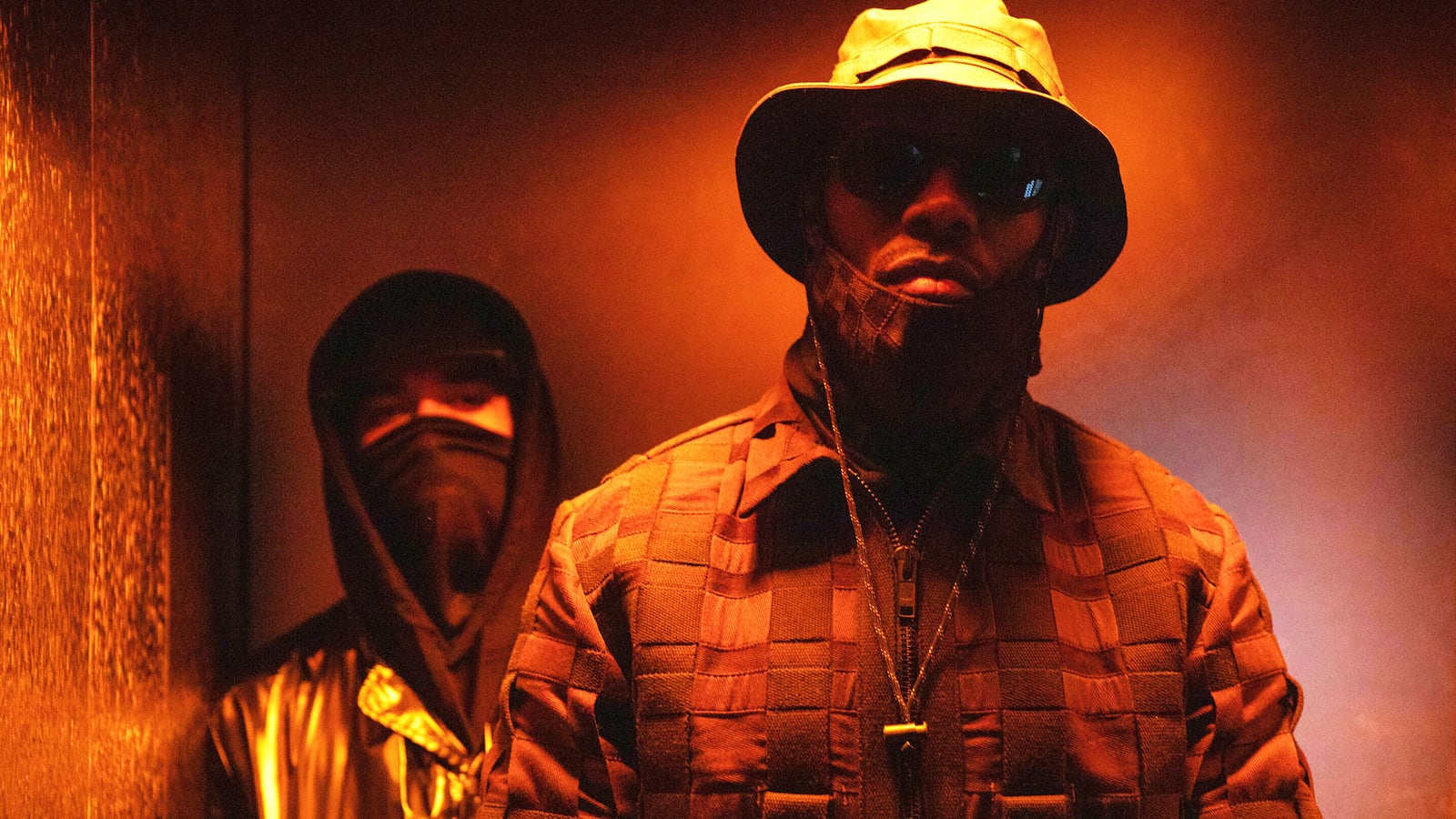Like any piece of art inspired by Blade Runner, Jungle is a show that really wants to impress you.
The British drill-rap series, now streaming on Prime Video, establishes an avant-garde visual language and poetic sensibility right out the gate. In the pilot’s cold open, we cut between shots of waves crashing on a beach, a Black boy staring at a burning house, dictionary text and an ominous flip clock while the lead character, Gogo (Ezra Elliott), has a prophetic conversation over the phone.
“I gotta get out of here, man,” he tells an unnamed man, referring to his crime-ridden life. “I gotta breathe. I just feel like if I stay here, I’m going to die.”
After he ends the call, a narrator explains to us that the fictional, violent scenarios we’re about to witness are, indeed, the real experiences of actual people trying to survive in impoverished inner cities. “What if I told you that this was our world?” he asks. “Things we’ve experienced? Things we’ve seen? Would it make a difference at all to the way you guys see things, give you a better understanding of us? Probably not, right?”
The entire monologue is a confused, vapid introduction, seemingly aimed at middle-class viewers and meant to add some mystique to a pretty familiar environment in film and television. However, we learn very quickly that there’s nothing too abnormal, unique or necessarily interesting about the dog-eat-dog world creators Junior Okoli and Chas Appeti (known as Nothing Lost) have designed, aside from its near-futuristic setting and the characters’ use of drill rap to occasionally communicate.
Even then, the musical element doesn’t elevate Jungle’s overly familiar, underwritten narrative. The series centers on the aforementioned Gogo, whose main conflict, like many a protagonist in a hood tale, is whether or not to abandon his criminal lifestyle before it kills him and/or his loved ones. He doesn’t derive much joy out of thievery, rather using it as a means to survive. We see later that he’s stuck in an addictive cycle. Additionally, his pregnant girlfriend Jessica (Nadia A’Rubea) is distressed by the danger he puts himself in. In a plea to get him to retire—that was so obviously written by a man—she tearfully reminds him over and over that he’s a “king.”
Gogo’s also a bit of an amateur, especially in comparison to his ruthless veteran partner Slim (rapper RA). This becomes evident when he attempts to boss up on a robbery victim, resulting in a lethal mistake. Somehow, despite his guilty conscience and the victim’s family members on his tail, Gogo attempts to sell the slain man’s expensive watch to a notorious dealer named Mia Mor$, played by rapper IAMDDB. This creates conflict with Slim, who originally took the watch, and a series of other problems for the people in Gogo’s orbit. And his dream of a peaceful life moves further and further away.
Even the most modern, cutting-edge crime stories share recognizable beats and storylines. But there’s nothing about Jungle’s pacing or the life-threatening situations its characters face that really gets your heart racing. On a show like HBO’s Barry, for example, there’s a distinctiveness and thoughtfulness to the way violence is presented. Murders aren’t necessarily glamorized, but they’re still shocking and compelling when they occur. Oppositely, on Jungle, the creators clearly wanted to make the show’s action sequences look “cool,” first and foremost. But the result is unoriginal and bland, like you’re watching a glossy music video or video game.
That’s honestly how you could describe the series overall. It lifts strobe-light aesthetics and camera techniques from Belly, Harmony Korine movies and, according to its creators, Looper. However, these stylistic choices aren’t enough to save some pretty uninspired writing. Even portions where characters break into verse add little flavor. And none of the actors are particularly skilled enough to be leading a high-stakes drama. What seemed like an innovative series is in dire need of some more workshopping.






